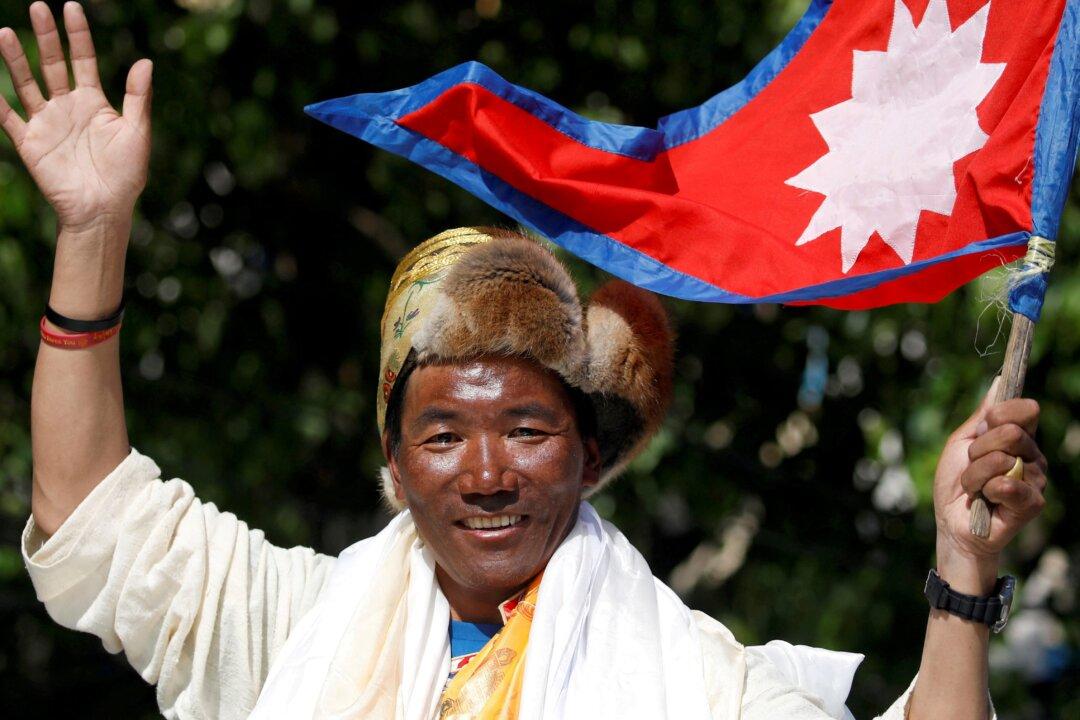KATHMANDU—A Nepali sherpa reached the summit of Mount Everest for a record 28th time on Tuesday, an official said, completing his second ascent in just a week, as the toll in this year’s climbing season rose to 11.
Kami Rita Sherpa, 53, reached the 8,849-metre (29,032-feet) summit by the traditional southeast ridge route, said Nepali tourism official Bigyan Koirala, following his 27th climb last week.





